August 12 stands as one of history’s most eventful days, witnessing the rise and fall of empires, groundbreaking discoveries, and moments that shaped our modern world across centuries of human achievement.
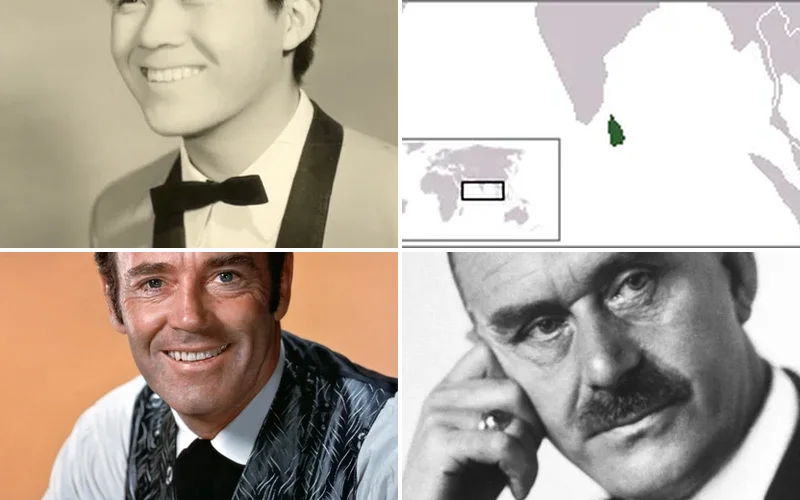
Politics and Government Events on August 12
1914 – United Kingdom Declares War on Austria-Hungary
Britain and its vast empire entered World War I by declaring war on Austria-Hungary. This decisive action expanded the conflict beyond continental Europe into a truly global war.
The declaration marked Britain’s full commitment to the Allied cause after initially entering the war against Germany. Colonial territories across the British Empire were automatically drawn into the devastating four-year conflict.
1953 – Soviet Union Detonates First Thermonuclear Bomb
The Soviet atomic bomb project achieved a major milestone with the detonation of “RDS-6s” (Joe 4) using revolutionary layered design. This thermonuclear test demonstrated Soviet nuclear capabilities to the world.
The successful test intensified the Cold War arms race between superpowers. Nuclear technology advancement fundamentally altered global political dynamics and military strategy for decades to come.
1964 – South Africa Banned from Olympic Games
The International Olympic Committee banned South Africa from Olympic participation due to apartheid policies. This unprecedented action isolated the nation from international sporting competition.
The ban remained in effect until 1992, serving as a powerful symbol of global opposition to racial segregation. South Africa’s exclusion highlighted the intersection of politics and sports in fighting systemic racism.
1969 – Battle of the Bogside Begins in Northern Ireland
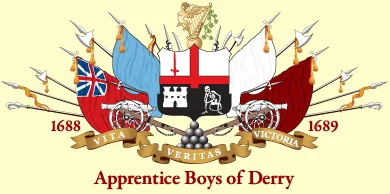
Violence erupted after the Apprentice Boys march in Derry, sparking three days of communal rioting. The confrontation between Catholic residents and Protestant marchers escalated into widespread civil unrest.
British troops deployed to restore order, marking a turning point in Northern Ireland’s troubles. The Battle of the Bogside became a catalyst for decades of sectarian conflict and political negotiations.
1992 – NAFTA Negotiations Completed
Canada, Mexico, and the United States announced completion of North American Free Trade Agreement negotiations. The historic trade pact promised to eliminate tariffs and boost economic cooperation across borders.
NAFTA created one of the world’s largest free trade zones, affecting millions of workers and consumers. The agreement fundamentally reshaped North American economic relationships and global trade patterns.
Military and Naval History on August 12
1914 – Battle of Halen Silver Helmets Engagement
Belgian and German cavalry formations clashed in the Battle of Halen, earning the nickname “Battle of the Silver Helmets.” This engagement demonstrated the continued role of mounted troops in early World War I combat.
The battle showcased traditional cavalry tactics against modern military technology. Belgian forces successfully defended their positions, providing an early morale boost during the German invasion of Belgium.
1944 – Wola Massacre Ends in Warsaw
Nazi German troops concluded the week-long Wola massacre after killing at least 40,000 Polish civilians. This systematic extermination represented one of the most horrific war crimes during the Warsaw Uprising.
The massacre targeted innocent men, women, and children in mass executions and indiscriminate killings. These atrocities demonstrated the Nazi regime’s brutal suppression of Polish resistance during World War II.
1950 – Korean War Bloody Gulch Massacre
North Korean forces executed seventy-five American prisoners of war in the Bloody Gulch massacre. This war crime violated international conventions governing treatment of captured military personnel.
The massacre occurred during the early phases of the Korean War when communist forces advanced rapidly. The incident highlighted the brutal nature of the conflict and disregard for prisoner rights by North Korean forces.
2000 – Russian Submarine Kursk Disaster
The Russian Navy submarine Kursk exploded and sank in the Barents Sea during military exercises. All 118 crew members perished in Russia’s worst peacetime naval disaster.
The tragedy exposed flaws in Russian naval safety procedures and international rescue coordination. The Kursk disaster became a defining moment for Vladimir Putin’s early presidency and military reform efforts.
Science and Discovery Milestones on August 12
1960 – Echo 1A Communications Satellite Launched
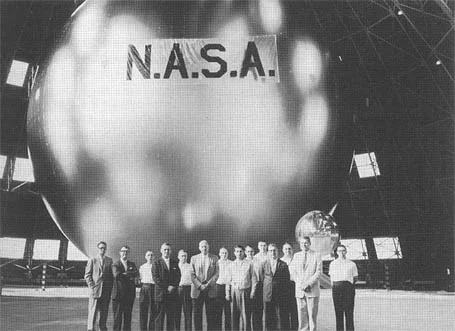
NASA successfully launched Echo 1A, the space agency’s first operational communications satellite. This pioneering achievement demonstrated the feasibility of satellite-based global communications.
The reflective balloon satellite enabled transcontinental radio signal transmission by bouncing communications off its surface. Echo 1A’s success paved the way for modern satellite communication networks connecting the world.
1977 – Space Shuttle Enterprise First Free Flight
The Space Shuttle Enterprise completed its first free flight test, separating from its carrier aircraft. This milestone proved the shuttle’s ability to glide and land like an airplane.
The successful test validated shuttle design concepts and approach procedures for future orbital missions. Enterprise’s flight marked a crucial step toward operational space shuttle program launches in the 1980s.
1990 – Sue the Tyrannosaurus Rex Discovered
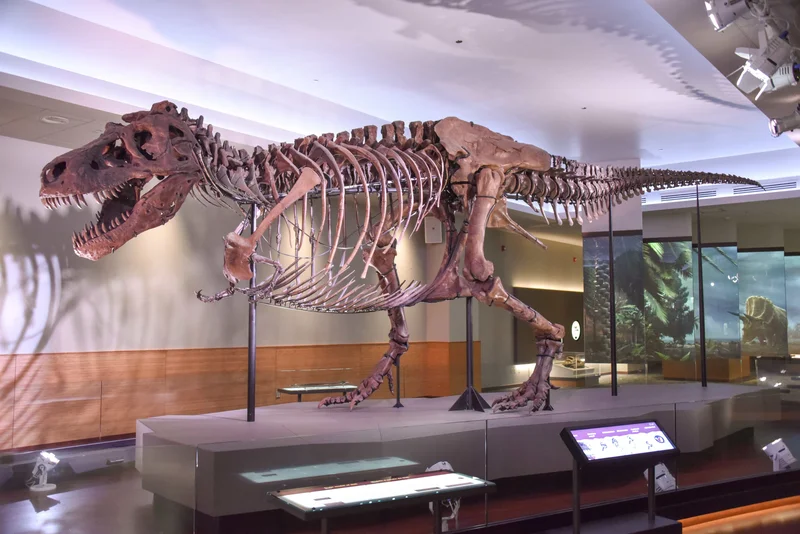
Paleontologist Sue Hendrickson discovered the largest and most complete Tyrannosaurus rex skeleton in South Dakota. The fossil, nicknamed “Sue,” revolutionized scientific understanding of these prehistoric predators.
Sue’s exceptional preservation provided unprecedented insights into dinosaur anatomy, behavior, and evolution. The discovery sparked legal battles over fossil ownership and eventually found a permanent home at Chicago’s Field Museum.
1981 – IBM Personal Computer Released
IBM launched the Personal Computer, revolutionizing home and business computing forever. The IBM PC established industry standards that dominated personal computing for decades.
The open architecture design allowed third-party manufacturers to create compatible hardware and software. IBM’s entry legitimized personal computers in corporate environments and accelerated widespread adoption of desktop computing technology.
Cultural and Arts Events on August 12
1952 – Night of the Murdered Poets
Soviet authorities executed thirteen prominent Jewish intellectuals in Moscow during Stalin’s anti-Semitic purges. This cultural genocide eliminated leading Yiddish writers, poets, and theater artists.
The secret executions silenced influential voices in Jewish cultural life across the Soviet Union. The Night of the Murdered Poets represented systematic persecution of Jewish intellectuals during Stalin’s final years.
1985 – Japan Air Lines Flight 123 Crashes

Japan Air Lines Flight 123 crashed into Osutaka ridge, killing 520 people in aviation history’s deadliest single-aircraft disaster. The Boeing 747 suffered catastrophic structural failure during domestic flight.
The tragedy prompted worldwide aviation safety improvements and investigation procedures. Flight 123’s crash revealed critical flaws in aircraft maintenance protocols and emergency response systems.
1984 – Atlanta Braves and San Diego Padres Brawl
An infamous baseball brawl erupted between the Atlanta Braves and San Diego Padres at Atlanta-Fulton County Stadium. The massive fight involved players, coaches, and team personnel in widespread violence.
The bench-clearing incident became one of baseball’s most notorious brawls, resulting in multiple ejections and suspensions. The confrontation highlighted rising tensions and aggressive play in professional baseball during the 1980s.
Religious and Social Events on August 12
1948 – Khudai Khidmatgar Movement Massacre
Pakistani police killed between 15 and 150 unarmed members of the Khudai Khidmatgar nonviolent resistance movement. The massacre targeted followers of Khan Abdul Ghaffar Khan’s peaceful independence philosophy.
The killings demonstrated the new Pakistani government’s harsh response to political opposition. The Khudai Khidmatgar massacre highlighted tensions between different independence movements in the newly partitioned subcontinent.
1977 – Sri Lankan Anti-Tamil Riots Begin

Violent riots targeting Sri Lanka’s Tamil minority began less than a month after the United National Party gained power. Over 300 Tamils were killed in widespread communal violence.
The riots marked a significant escalation in ethnic tensions between Sinhalese and Tamil communities. These events contributed to decades of civil war and ethnic conflict in Sri Lanka.
2015 – Unite the Right Rally in Charlottesville

The Unite the Right rally in Charlottesville, Virginia, resulted in three deaths and nearly 50 injuries. White supremacist groups gathered to protest the removal of Confederate monuments.
The rally culminated in a deadly vehicle attack against counter-protesters, shocking the nation. The Charlottesville events sparked national debates about racism, free speech, and Confederate symbolism in America.
Business and Economic Events on August 12
1994 – Major League Baseball Strike Begins
Major League Baseball players went on strike, eventually forcing cancellation of the 1994 World Series. The labor dispute centered on salary caps and revenue sharing between owners and players.
The strike lasted 232 days and alienated millions of baseball fans across America. The cancelled World Series represented the first time since 1904 that baseball’s championship was not held.
1976 – Tel al-Zaatar Massacre in Lebanon
Between 1,000 and 3,500 Palestinians were killed in the Tel al-Zaatar massacre during Lebanon’s civil war. The siege and massacre of the refugee camp marked one of the conflict’s bloodiest episodes.
The systematic killing targeted Palestinian civilians living in the overcrowded camp. The massacre intensified sectarian divisions and international involvement in Lebanon’s devastating civil war.
2015 – Tianjin Chemical Explosions
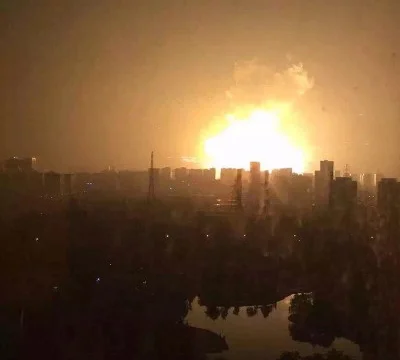
Two massive explosions at a chemical warehouse in Tianjin, China, killed 173 people and injured nearly 800. The disaster highlighted dangerous storage practices and regulatory failures in China’s industrial sector.
The explosions caused billions in property damage and environmental contamination. The Tianjin disaster prompted nationwide safety inspections and reforms in hazardous materials handling procedures.
Transportation and Infrastructure on August 12
1944 – Alençon Liberated by French Forces
General Philippe Leclerc de Hauteclocque’s forces liberated Alençon, making it the first French city freed by French troops. This victory marked a turning point in France’s liberation from Nazi occupation.
The liberation demonstrated the effectiveness of French resistance forces and Free French military units. Alençon’s freedom provided crucial momentum for the broader Allied advance across occupied France.
1953 – Ionian Islands Earthquake
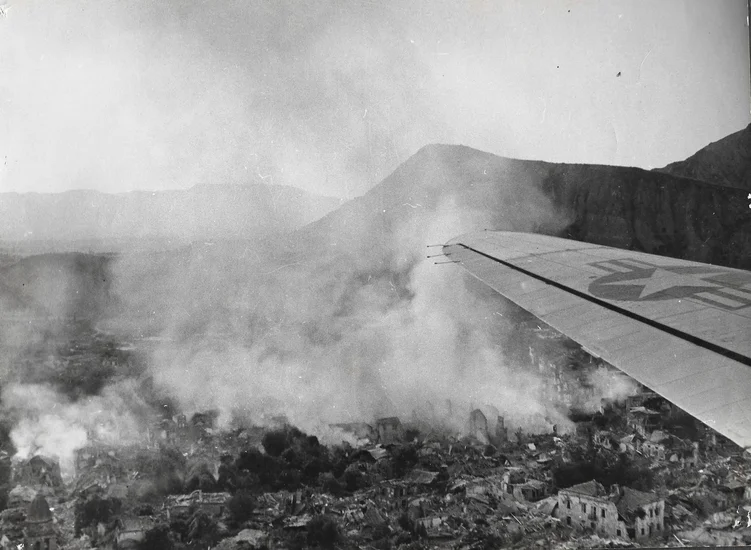
A devastating 7.2 magnitude earthquake struck the southern Ionian Islands with extreme intensity. Between 445 and 800 people died in Greece’s most destructive seismic event of the 20th century.
The earthquake destroyed entire villages and displaced thousands of residents. International aid efforts helped rebuild the shattered communities and implement improved construction standards for seismic safety.
2018 – Syrian Weapons Depot Explosion
Thirty-nine civilians, including twelve children, died in a weapons depot explosion in Sarmada, Syria. The blast highlighted the dangers of ammunition storage in densely populated civilian areas.
The explosion occurred during Syria’s prolonged civil war, when weapons stockpiles threatened civilian populations. The tragedy underscored the broader humanitarian crisis affecting millions of Syrian civilians.
Sports and Recreation on August 12
1960 – Olympic Movement Transforms
The International Olympic Committee banned South Africa from Olympic participation due to apartheid policies. This unprecedented action demonstrated sport’s power to combat racial discrimination.
The ban remained effective until 1992, serving as a powerful symbol of international opposition to institutionalized racism. South Africa’s Olympic exclusion highlighted the intersection of athletics and human rights advocacy.
1994 – Baseball Strike Threatens World Series
Major League Baseball players initiated a strike that would eventually cancel the 1994 World Series. The labor dispute centered on fundamental disagreements about player compensation and revenue sharing.
The strike lasted through the winter and into the following season, damaging baseball’s popularity. The cancelled World Series represented an unprecedented failure to complete professional baseball’s championship tournament.
2021 – Plymouth Mass Shooting
Six people died in Keyham, Plymouth, in Britain’s worst mass shooting since 2010. The tragedy highlighted concerns about gun violence and mental health support in the United Kingdom.
The incident shocked the normally peaceful Devon community and prompted renewed debates about firearms regulations. The Plymouth shooting demonstrated that gun violence remained a serious concern even in countries with strict weapons laws.
Notable Births on August 12
1904 – Alexei Nikolaevich, Tsarevich of Russia

The heir to the Russian throne was born on this date, carrying the burden of hemophilia and imperial expectations. His medical condition influenced his mother’s reliance on the controversial mystic Rasputin.
Alexei’s illness became a closely guarded state secret that affected the Romanov family’s decision-making. The young tsarevich’s tragic fate was sealed when Bolsheviks executed the entire imperial family in 1918.
1930 – George Soros, Hungarian-American Businessman

The future billionaire investor and philanthropist was born in Budapest during a period of growing political instability. His early experiences with Nazi occupation and communist rule shaped his worldview.
Soros would later become one of the world’s most successful currency traders and influential political donors. His Open Society Foundations have supported democratic movements and human rights causes globally.
1949 – Mark Knopfler, Scottish-English Musician

The Dire Straits frontman entered the world destined to become one of rock’s most distinctive guitarists. His fingerpicking style and storytelling lyrics would define an entire generation’s musical landscape.
Knopfler’s compositions like “Sultans of Swing” and “Money for Nothing” became classic rock staples. His musical influence extended far beyond Dire Straits through solo work and film scoring achievements.
1954 – François Hollande, French President

The future 24th President of France was born into a middle-class family in Rouen. His early political involvement began during university years studying at prestigious French institutions.
Hollande’s political career culminated in his 2012 presidential victory over Nicolas Sarkozy. His presidency faced significant challenges including terrorist attacks and economic difficulties during his five-year term.
1971 – Pete Sampras, American Tennis Champion

The future tennis legend was born in Washington, D.C., to Greek immigrant parents. His natural athletic ability and competitive drive became evident during his childhood years.
Sampras would dominate men’s tennis throughout the 1990s, winning 14 Grand Slam singles titles. His powerful serve and all-court game established him as one of tennis’s greatest players.
1975 – Casey Affleck, American Actor

The Academy Award-winning actor was born in Massachusetts into a family that would produce two Hollywood stars. His early interest in acting developed alongside his older brother Ben’s similar pursuits.
Affleck’s breakthrough performances in independent films established his reputation as a serious dramatic actor. His portrayal of complex characters earned critical acclaim and major industry recognition.
1992 – Cara Delevingne, English Model and Actress

The supermodel and actress was born into an upper-class English family with connections to high society. Her distinctive eyebrows and charismatic personality would revolutionize fashion industry standards.
Delevingne transitioned from modeling to acting, appearing in major Hollywood productions. Her influence extends beyond entertainment through advocacy for mental health awareness and LGBTQ+ rights.
Notable Deaths on August 12
1955 – Thomas Mann, German Author
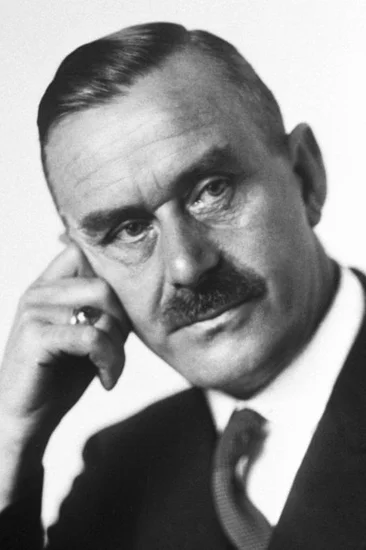
The Nobel Prize-winning author died in Switzerland, concluding a literary career that spanned decades of German cultural upheaval. His novels explored the decline of European bourgeois society with remarkable psychological insight.
Mann’s works like “The Magic Mountain” and “Death in Venice” became classics of 20th-century literature. His exile from Nazi Germany demonstrated the intellectual courage required to oppose totalitarian regimes.
1982 – Henry Fonda, American Actor
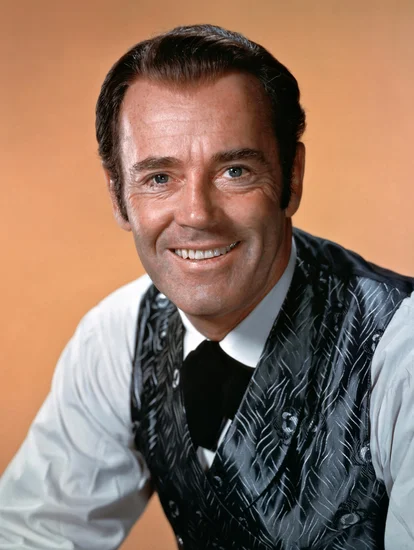
The legendary Hollywood actor passed away after a career spanning over five decades of American cinema. His portrayals of moral, principled characters defined an entire generation’s understanding of heroism.
Fonda’s performances in “The Grapes of Wrath” and “12 Angry Men” showcased his ability to embody American ideals. His influence on acting technique and screen presence inspired countless future performers.
1985 – Kyu Sakamoto, Japanese Singer

The international recording star died tragically in the Japan Air Lines Flight 123 crash. His hit song “Sukiyaki” had become the first Japanese-language song to reach number one on American charts.
Sakamoto’s cross-cultural musical success broke barriers for Asian artists in Western markets. His death in aviation history’s deadliest single-aircraft disaster shocked fans across two continents.
1992 – John Cage, American Composer

The avant-garde composer died in New York, leaving behind a revolutionary approach to music and sound. His experimental compositions challenged traditional notions of musical structure and performance.
Cage’s piece “4’33″” consisting entirely of silence became one of the most influential works of modern music. His philosophical approach to composition influenced artists across multiple disciplines and generations.
2000 – Loretta Young, American Actress

The Academy Award-winning actress died in Los Angeles after a career spanning radio, film, and television. Her elegant screen presence and professional longevity made her a Hollywood icon.
Young’s successful transition from silent films to talkies and eventually television demonstrated remarkable adaptability. Her weekly television show brought her into American homes for nearly a decade.
2007 – Merv Griffin, American Entertainment Mogul

The television producer and host died after creating two of the most successful game shows in history. His innovations in television programming generated billions in revenue and entertained millions.
Griffin’s creation of “Jeopardy!” and “Wheel of Fortune” revolutionized daytime television programming. His business acumen extended beyond entertainment into real estate and casino operations.
Holidays and Observances on August 12
International Youth Day

The United Nations designated August 12 as International Youth Day to highlight youth issues and celebrate young people’s contributions to society. This global observance promotes youth participation in political, social, and economic development.
The day encourages governments and organizations to address challenges facing young people worldwide. International Youth Day serves as a platform for advocating youth rights and opportunities in education, employment, and civic engagement.
World Elephant Day

This international observance raises awareness about the urgent plight of elephants facing extinction threats. Conservation organizations use this day to promote elephant protection and habitat preservation efforts.
The celebration highlights the critical role elephants play in maintaining ecological balance across Africa and Asia. World Elephant Day mobilizes public support for anti-poaching initiatives and sustainable wildlife management practices.
Glorious Twelfth
The United Kingdom’s traditional start of the grouse shooting season begins on August 12. This centuries-old tradition marks the opening of red grouse hunting on British moors.
The Glorious Twelfth represents an important cultural tradition for rural communities and sporting enthusiasts. The day generates significant economic activity for remote Scottish and Northern English communities through hunting tourism.
